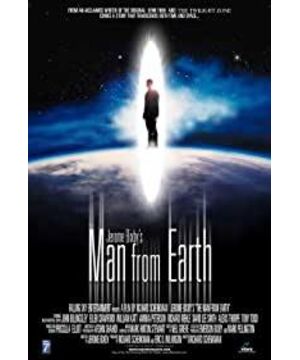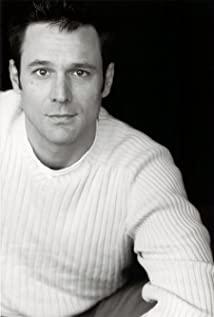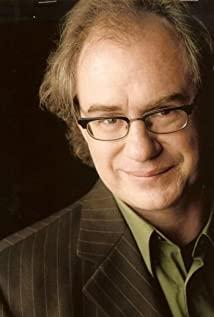The whole story was started by him, told by his mouth, and connected with the characters in the play by his experience, but in fact, the male protagonist played an excellent "supporting role" in the whole film. The excellent reactions of several participating characters in the play are the real "protagonists" of this film.
The professors in the play are biologists, archaeologists, sociology experts, psychologists, college students, religious people, and female teachers who fall in love with the male protagonist. John's experience is a mixture of the disciplines that these people are proficient in, but there are no people in science and engineering, because the director and screenwriter deliberately avoided the so-called factual and logical textual research, so that the whole film was generated in speculation, which also made The entire conversation escapes the consideration of objective facts and is full of fog.
After watching the whole film, the most intriguing thing is the reaction of several supporting characters in the play.
Psychologists first went mad because of John's immortality, biologists were joking and curious, archaeologists couldn't accept stories they couldn't understand, and they were always in anger, religious people collapsed because their beliefs were overturned, and the female teacher who liked the protagonist Always believing his story, the sociologist weeps when he learns that everything is a story, and he loses a chance to get closer to the truth. And the female college student's reaction is to represent the tolerance of new ideas. Although she has doubts, she is not afraid. In terms of performance, she accepted this impossible story with goodwill, and was delighted by the wonder it brought. She is an existence different from the above professors and represents the infinite possibilities of the future.
What about moviegoers? How do you feel after reading this story?
I believe that everyone has experienced a psychological change in the characters.
When psychologists used "guilt" to accuse John, how many people's hearts were spoken. Eternal life, why don't we long for it, and don't we envy those who surpass us in life? We would take John's guilt for granted, and we long for such a legend.
When archaeologists completely deny John's account, do we also feel that John's account is actually plagiarizing textbooks? A skeptic and an empiricist us emerged.
When we incarnate as biologists, do we also want to pull John into the laboratory immediately, study the mechanism of his immortality, and discover some shocking secrets?
Although in the eyes of Chinese audiences, the shock of John's incarnation of Jesus may not be as strong as that of Western audiences, but when he said that he had studied with Buddha, it was a subversion of the inherent cognition, how shocked we are ?
Insert a sentence. I was the one who was most impressed by this account of John.
When he mentioned that he might be a biblical figure, I silently hoped he wasn't Jesus. In the same way the Buddha suggested, these two figures herald the end of cognition. The search for religion and the mystical came to an end when the ultimate symbol was secularized. So it's best to be a mystery forever. If you know the answer, the whole world may not have meaning to you. Your cognition gets the ultimate answer, but the answer is so simple, like "100 words" The new covenant”, which brought the greatest shock.
The people in the play joked in the conversation, and the people sitting may be descendants of John. The film also revealed this riddle at the end. The entire movie closes the track of the compass when John admits he is the father of a psychology professor. Perhaps our previous misgivings came to an end at this moment, but it was also at this last moment that we began to examine our psychological changes throughout the story.
From the beginning of doubt, to curiosity, and then expecting to find flaws, then being attracted by the story, collapsing in front of the facts, and finally having to accept the shock.
John's narration is not about the characters in the play, but about every moviegoer, and every moviegoer participates in the film and interprets their own unique reactions.
The female teacher's corner finally boarded John's car and left, which is also a wonderful stroke for the play to implement the theme of "compasses".
In the dialogue, John told everyone from the perspective of eternal life that different ethnic groups are repeating development and mistakes over an over again. At the end of the film, John is also repeating his own compass trajectory. One of his adult children died violently after confirming his identity, but he still brought a female teacher. Will he still act as the father who disappears in the next 10 years and meet his adult son again in an unknown place.
The film is full of philosophical thought, and even has many philosophical school studies throughout it. Whether John lived for 14,000 years is no longer important. The charm of his story lies not in "impossible", but in how the cognition of each possible world changes. Responses to various psychological shocks, which may be related to our knowledge background (the subject area of several professors), maybe related to our experience (the death of a psychologist wife), maybe related to our feelings (falling in love with the male lead) female teachers), but ultimately it is about our expectations for the future.
Einstein said that the whole beauty of life lies in the exploration of the unknown,
so don't tell me the end, it may scare me to death.
View more about The Man from Earth reviews











